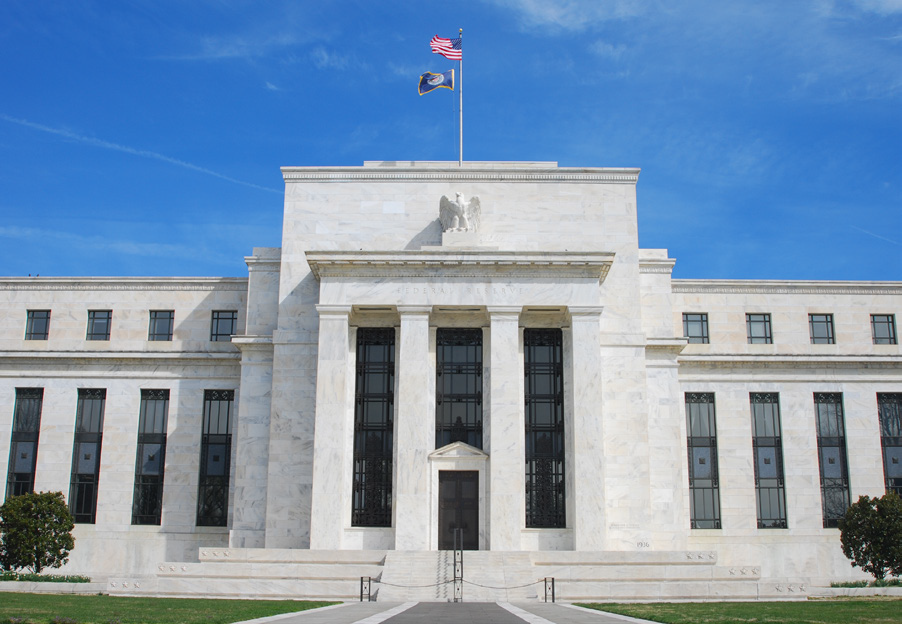

Over the past 12 months, in an effort to slow inflation, central banks (such as the Bank of England, the European Central Bank, and the US Federal Reserve) have been rapidly increasing interest rates.
The traditional logic is that increasing interest rates will have a cascading effect on the economy, making credit more costly and encouraging a change in spending habits. The US Federal Reserve (Fed) has been employing this tactic since March 2022, with the US central bank raising rates eight times over this period.
Investors around the world have been watching and anticipating what might change central bank policy. Markets usually price in how they expect central banks to operate in the coming months, and markets have largely been expecting the Fed to start bringing rates down by the end of year.
However, the strong employment data recently released in the US has surprised many as it showed 517,000 new jobs were created in January, surpassing the market-held estimate of 187,000. The job market in the US is a crucial metric for the Fed and it has continued to surprise commentators with its resilience.
Higher employment may initially sound like good news, with US unemployment at a 53-year low. However, a strong job market fuels rising wages, which can push companies to increase their prices to cover the additional costs. In turn, this can drive inflation higher. The recent employment data could also be seen as a sign that higher rates are so far having a limited impact and could cause the Fed to act further.
At a recent public appearance, Jerome Powell, the Chairman of the Fed, spoke about how the central bank will continue to focus solely on the data and ‘could certainly raise rates more’.
This clearly highlights a mismatch between what the market is expecting, and what the central bank may do in reality. Based on Jerome Powell’s comments, interest rates could indeed be higher than they are now in a
year or so, and if this mismatch between market expectations and central bank actions continues, there could be more market volatility in the near term. However, higher interest rates could also be a positive for high-quality value stocks such as oil, commodity, defence, energy, and banking.
Key takeaways
– Central banks raise interest rates in an attempt to keep inflation under control.
– Currently, there is a mismatch between how central banks and markets perceive the inflationary outlook.
– If rates do go higher, this could be positive for high-quality value stocks such as energy and banking.
This communication is issued by Quilter Investors Limited (“Quilter Investors”), Senator House, 85 Queen Victoria Street, London, United Kingdom, EC4V 4AB. Quilter Investors is registered in England and Wales (number: 04227837) and is authorised and regulated by the Financial Conduct Authority (FRN: 208543).
This communication is for information purposes only. Quilter Investors uses all reasonable skill and care in compiling the information in this communication and in ensuring its accuracy, but no assurances or warranties are given. You should not rely on the information in this communication in making investment decisions. Nothing in this communication constitutes advice or personal recommendation.
Any opinions expressed in this document are subject to change without notice and may differ or be contrary to opinions expressed by other business areas or companies within the same group as Quilter Investors as a esult of using different assumptions and criteria.
Data from third parties (“Third-Party Data”) may be included in this communication and those third parties do not accept any liability for errors and omissions. Therefore, you should make sure you understand certain
important information, which can be found at www.quilter.com/third-party-data/. Where this communication contains Third-Party Data, Quilter Investors cannot guarantee the accuracy, reliability or completeness of such
Third-Party Data and accepts no responsibility or liability whatsoever in respect of such ThirdParty Data.
Quilter Investors is not licensed or regulated by the Monetary Authority of Singapore (“MAS”) in Singapore. This document has not been reviewed by MAS.
QIP 26133/63/2890/February 2023
By clicking this link you are departing from the regulated site of Ablestoke Financial Planning LLP.
Neither Ablestoke Financial Planning LLP nor Quilter Financial Planning accept responsibility for the accuracy of the information contained with this site.
Open Link